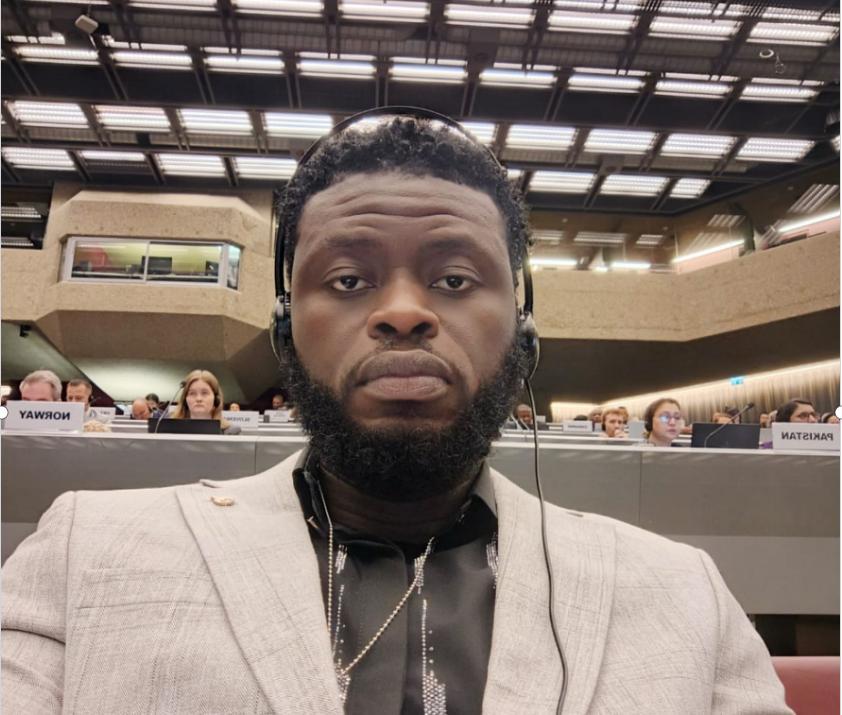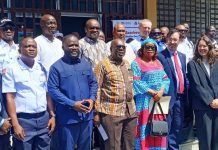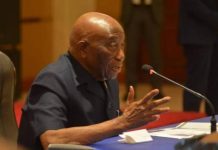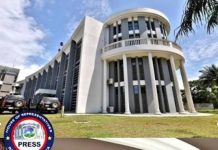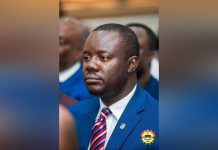Africa-Press – Liberia. In his interventions, Mr. Jallah emphasized that Liberia’s active involvement in COP-6 signals the government’s determination to strengthen environmental governance and uphold global standards for pollution control.
Liberia has joined representatives from more than 140 countries at the Sixth Meeting of the Conference of the Parties (COP-6) to the Minamata Convention on Mercury, now underway in Geneva, Switzerland.
The week-long global conference, running from November 3 to 8, 2025, focuses on advancing international efforts to eliminate the harmful use and release of mercury — a toxic element that poses serious threats to human health and the environment.
The Environmental Protection Agency (EPA) of Liberia confirmed the country’s participation and reaffirmed its commitment to the objectives of the Convention. Leading the Liberian delegation is Mr. John K. Jallah, Jr., the National Focal Point of the Minamata Convention and Director of Compliance and Enforcement at the EPA. Mr. Jallah is representing Liberia in plenary and technical sessions, where he is expected to present the nation’s progress in controlling mercury emissions and promoting safer, mercury-free practices in artisanal and small-scale gold mining (ASGM).
In his interventions, Mr. Jallah emphasized that Liberia’s active involvement in COP-6 signals the government’s determination to strengthen environmental governance and uphold global standards for pollution control.
He noted that the country’s inclusion as one of the newest Parties to the Convention reflects its growing commitment to sustainable development and to safeguarding the health of its citizens, especially those in mining communities.
“Liberia recognizes that mercury pollution is not only an environmental issue but also a public health challenge,” Mr. Jallah said. “Our participation at COP-6 allows us to engage with global partners, exchange expertise, and secure technical and financial support to fully implement our obligations under the Convention.”
The Minamata Convention on Mercury, adopted in 2013, is the world’s primary treaty aimed at protecting human health and the environment from mercury exposure. It calls for the phase-out of mercury in products, the regulation of emissions, and the proper management of mercury waste.
In Geneva, Liberia has joined other African countries under the African Group to advocate for stronger global cooperation and equitable support for developing nations. The Liberian delegation has endorsed proposals to enhance technical assistance, increase funding for mercury-free technologies, and strengthen enforcement mechanisms against the illegal trade in mercury and mercury compounds.
The EPA also expressed Liberia’s backing for a coordinated regional strategy to ensure the environmentally sound management of mercury waste. This approach, which promotes closer collaboration among the Minamata, Basel, and Bamako Conventions, aims to improve waste control systems, minimize cross-border contamination, and advance sustainable resource use across Africa.
In a statement issued in Monrovia, the EPA reaffirmed Liberia’s dedication to fully implementing the Convention’s provisions. The Agency highlighted ongoing national initiatives, including the development of a comprehensive mercury inventory, the introduction of mercury-free technologies in gold mining, and the enforcement of stricter environmental compliance measures.
The EPA also reiterated that protecting local communities—particularly those vulnerable to mercury exposure—remains at the center of its environmental policy agenda.
“The Government of Liberia is committed to promoting responsible mining and ensuring that our natural resources are developed in a manner that protects people and the environment,” the EPA statement read. “We are working closely with local and international partners to reduce mercury use, improve occupational health standards, and strengthen environmental governance across all sectors.”
Decisions and resolutions adopted at COP-6 are expected to inform Liberia’s ongoing implementation of its National Action Plan (NAP) for the Artisanal and Small-Scale Gold Mining sector. The NAP outlines key actions to eliminate mercury from mining operations, build technical capacity, and create economic alternatives for miners transitioning to safer, cleaner methods.
Liberia’s participation in COP-6 is viewed as an opportunity to strengthen international partnerships, mobilize resources, and reaffirm the country’s leadership role in addressing environmental challenges. The EPA stated that lessons learned from the conference will contribute significantly to national policy reforms and help position Liberia as a responsible actor in the global environmental arena.
The Minamata Convention takes its name from the Japanese city of Minamata, where widespread mercury poisoning in the 1950s caused severe health and ecological damage. The tragedy led to one of the most important global movements for environmental justice and laid the foundation for the Convention’s creation.
By participating in COP-6, Liberia joins the international community in the ongoing effort to “make mercury history” and to build a cleaner, safer, and healthier planet for future generations.
For More News And Analysis About Liberia Follow Africa-Press

